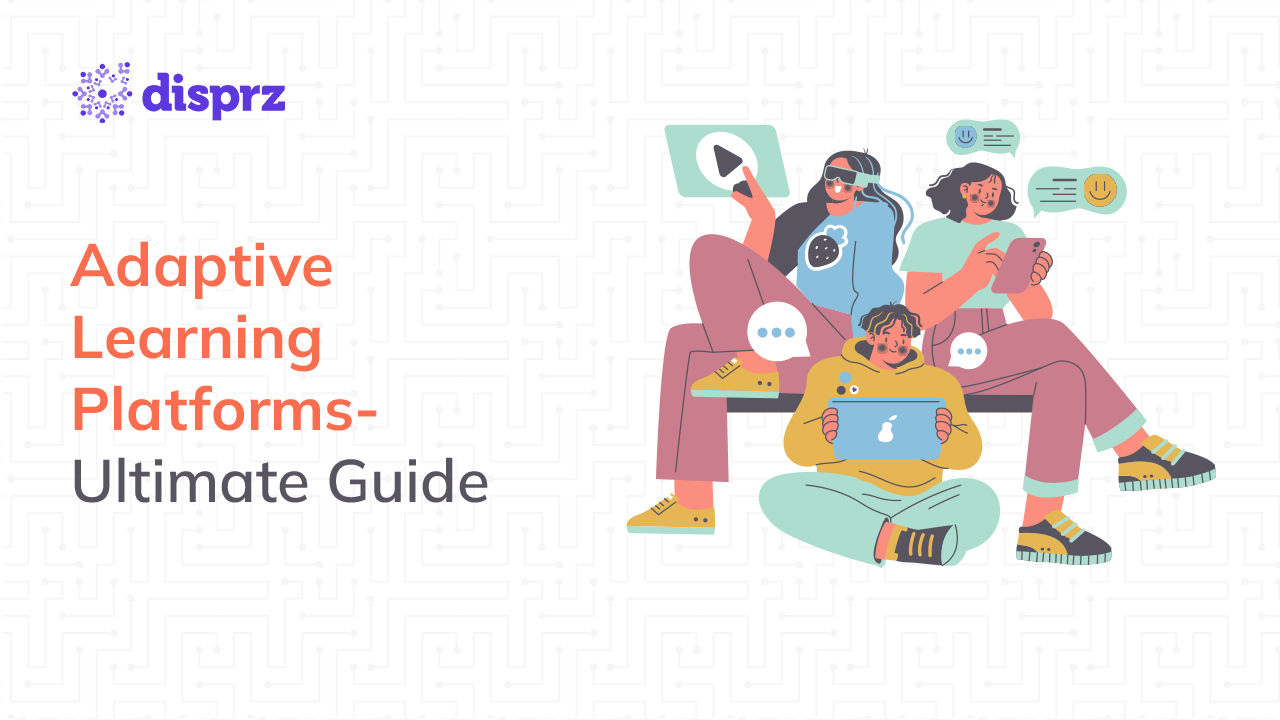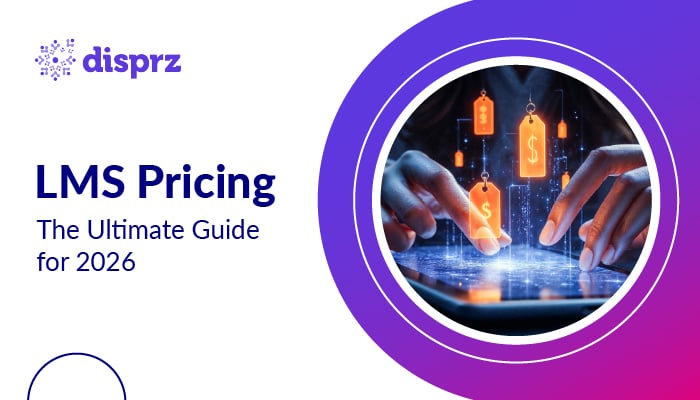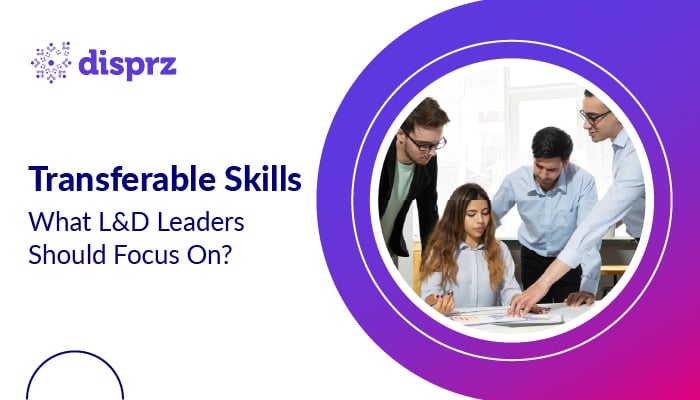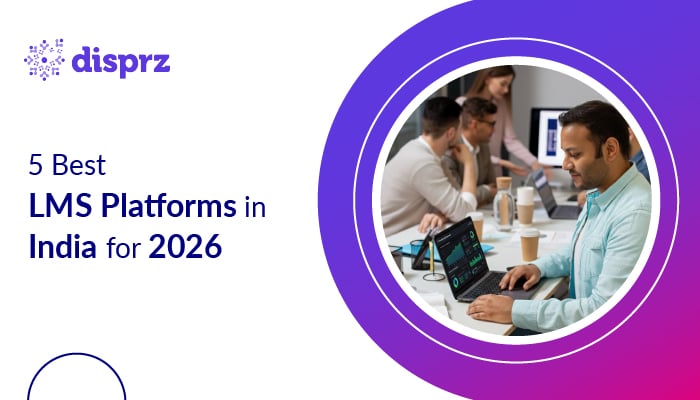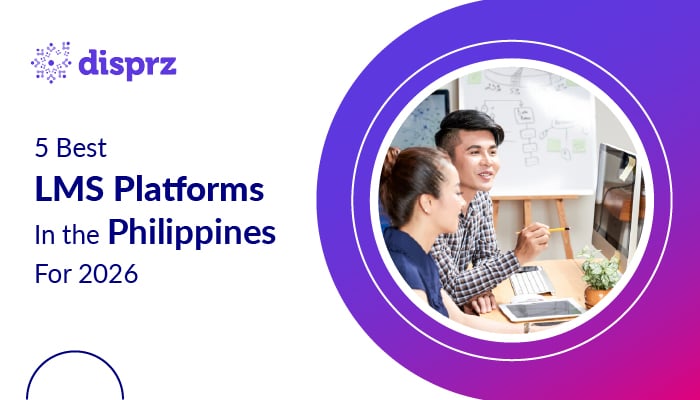What is Adaptive Learning?
Adaptive learning, also known as personalized learning systems, is transforming corporate training by delivering individualized programs tailored to each employee’s unique needs. These platforms leverage data mining and AI in adaptive learning platforms to analyze learner performance and preferences, creating customized learning paths that optimize training outcomes. For HR professionals and corporate training managers, this means delivering personalized training experiences that improve employee engagement and skill development.
The growing interest in adaptive learning platform stems from their ability to address skill gaps, enhance learning flexibility, and provide data-driven insights into employee performance. By tailoring training content to individual needs, these platforms ensure that every learner achieves their full potential.
How Does Adaptive Learning Work?
The adaptive learning platforms operate through online training modules that include interactive activities and assessments. After completing these assessments, learners receive AI-driven recommendations for tailored learning materials based on their performance. This iterative process continues until mastery is achieved, ensuring that employees can close skill gaps effectively.
For Learning & Development teams, these platforms provide real-time analytics to monitor employee progress, engagement levels, and performance metrics. This data is used to refine learning pathways, ensuring a personalized and impactful training experience for every employee.
Different Types of Adaptive Learning with Examples
There are various types of adaptive learning platforms, each designed to meet specific corporate training needs and objectives. Understanding these types can help HR professionals and corporate training managers choose the best adaptive learning platform for their organization.

Content-based platforms
These platforms deliver customized learning materials based on an employee’s existing knowledge, skills, and learning goals. For example, adaptive courses and learning modules adjust in real time to match the learner’s comprehension level, ensuring a personalized training experience.
Assessment Driven Platforms
These platforms use adaptive assessments to identify employees’ strengths, weaknesses, and knowledge gaps. Based on the results, they recommend personalized training materials and activities. Examples include adaptive testing systems and learning management systems (LMS) with integrated assessment features.
Why Do You Need an Adaptive Learning Platform?
Training and onboarding become more cost-effective. Efficiency improvements decreased reliance on lengthy training periods, and enhanced outcomes contribute to cost savings over time.
Learning flexibility is a key advantage of adaptive learning platforms, allowing access to training materials anywhere, anytime. This is especially beneficial for remote or distributed workforce situations.
Efficient Mastery of New Applications continuously assesses learner performance for new applications, adjusting content accordingly. This ongoing feedback loop identifies areas for improvement, ensuring individuals thoroughly grasp concepts before moving forward.
Enhance Training Enjoyment in incorporating interactive features, AI elements, gamification, and instant feedback boosts engagement, which is vital for sustaining learner motivation and interest, resulting in improved overall outcomes.
Enhancing Training through Data Analysis provides valuable insights into learner progress and performance. This data empowers training professionals to make informed decisions and refine learning materials based on analytics.
Adaptive learning platforms are essential for modern corporate training programs because they deliver cost-effective, flexible, and personalized learning experiences. Additionally, it continuously assess employee performance, providing real-time feedback and adjusting content to address skill gaps. This ensures that employees thoroughly grasp concepts before moving forward, leading to better training outcomes and higher engagement.
In the report “Adaptive Learning Organization” even Josh Bersin sheds light on the importance of becoming an adaptive learning organization in the post-Covid era.
As per his research, organizations with an adaptive learning approach are 53% more likely to experience growth.
Below are the three characteristics of adaptivity that enable a proactive and fluid learning ecosystem:
1) Sense – Measure, analyze, and draw actionable insights to proactively prepare for the emerging future.
2) Decide – Have a continual flow of insightful information with built-in pivot points that enable quick transformation decisions and efficient course correction.
3) Evolve – Continually seeking innovation, testing new technologies, anticipating and transitioning to new ways of delivering learning.
What Challenges Does Adaptive Learning Address?
While adaptive learning platforms offer significant benefits, they also address key challenges faced by corporate training managers and HR professionals.
These include:
Data Privacy & Security
Adaptive learning platform collect and store extensive learners’ data, raising privacy and security concerns. Corporate learning programs must ensure strict data protection and carefully manage data sharing with third parties. Clear guidelines and agreements are essential to limit unauthorized access to sensitive learner information.
Reliance on technology infrastructure
Implementing adaptive learning platforms in corporate learning requires robust technology, including high-speed internet, suitable devices, and reliable software. Limited access to these resources can hinder adoption. Additionally, successful integration depends on providing technical support and training for users.
Potential for reinforcing learning biases
Adaptive learning platforms in corporate learning can perpetuate biases if algorithms are based on flawed data. Developers and users must address algorithmic bias to ensure equitable outcomes. Additionally, balancing quantitative data with qualitative insights is crucial for a comprehensive understanding of the learner's experience.
Benefits of Adaptive Learning in Corporate Training
Adaptive learning delivers measurable benefits for corporate training initiatives, making them a valuable tool for HR professionals and L&D teams.

Time-efficiency
Adaptive training saves time by allowing learners to skip familiar content, using a confidence-based approach to fast-track advanced learners. This method boosts engagement and productivity, benefiting both employees and the company. Additionally, feedback from these tests helps course designers improve learning programs.
Personalized learning
Adaptive learning creates personalized learning paths customized to each learner's needs, accommodating diverse knowledge levels. It collects analytics to personalize training content, providing real-time intervention for those struggling and boosting engagement by adapting to each learner’s style and pace.
Scalability
While adaptive learning has roots in traditional training methods, its implementation in digital learning addresses scalability challenges faced by trainers. An LMS enables seamless training rollout across the organization, allowing employees to access customized learning pathways from any device. This, paired with quality learning experience design, ensures effective learning company-wide.
Upskilling and Reskilling Programs
These platforms enable employees to learn new skills and improve job performance, which is essential in evolving industries. Companies utilize adaptive learning to target specific skill gaps and align training with organizational goals, creating personalized learning plans based on individual proficiency and learning preferences.
Employee Performance Tracking and Analytics
Trainers can track employee progress and analyze learning data to assess training effectiveness. This data informs decision-making, enabling trainers to improve training programs and support employees in obtaining certifications and planning career advancement.
Core Features of Adaptive Learning Platform 2026
Real-Time Adaptation and Feedback
Modern adaptive learning platform offer real-time adjustments and feedback, tailoring content and difficulty based on user actions. Immediate feedback allows users to address mistakes promptly, fostering engagement, reducing frustration, and sustaining interest in learning.
Predictive Analytics in Personalized Learning Paths
Predictive analytics in adaptive learning leverage past learner data to anticipate their needs, aiding trainers in early problem detection and targeted support. This proactive strategy enhances learning efficiency and promotes continuous improvement.
Artificial Intelligence & Machine Learning
Artificial Intelligence and ML advancements enhance adaptive learning platform by personalizing content based on individual learning styles and needs. These technologies analyze data to tailor training methods, assessments, and feedback, resulting in more enjoyable and effective learning experiences.
Conclusion
Adaptive learning platforms are revolutionizing corporate training by delivering personalized, data-driven, and scalable learning experiences. To get started with Disprz, embrace its personalized learning solution by harnessing data-driven insights for tailored experiences. Utilize its real-time feedback and adaptive mechanisms for engagement and learning efficiency. Integrate AI and ML for optimized training methods.
Ready to transform your training programs? Schedule a demo today and see how the best adaptive learning platform can empower your workforce.



